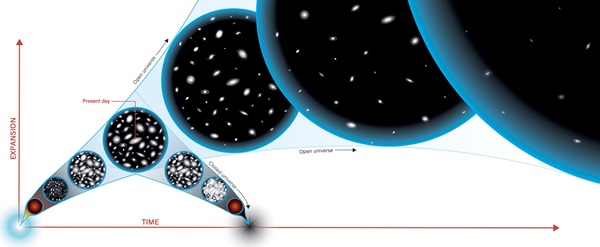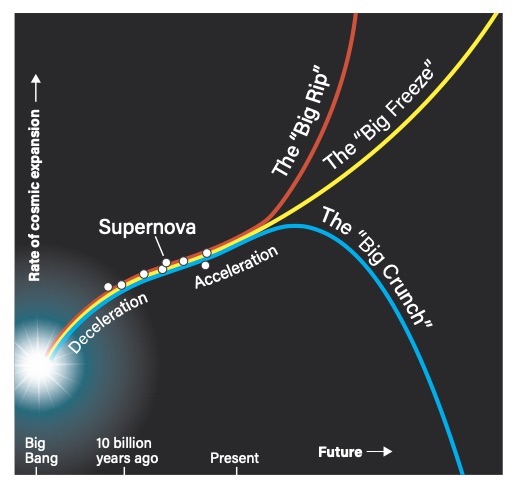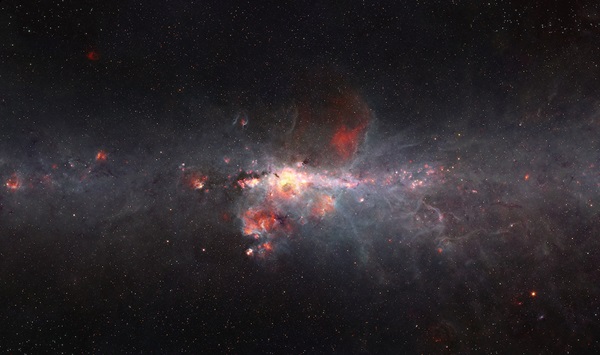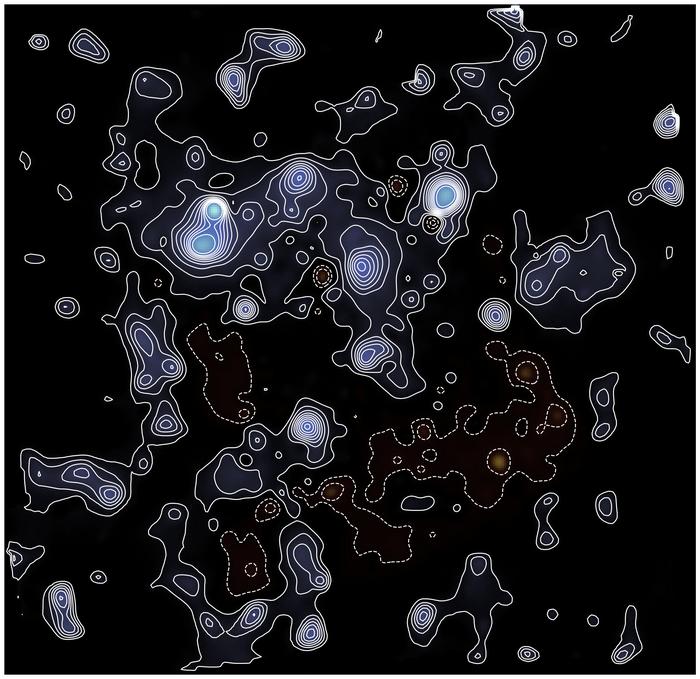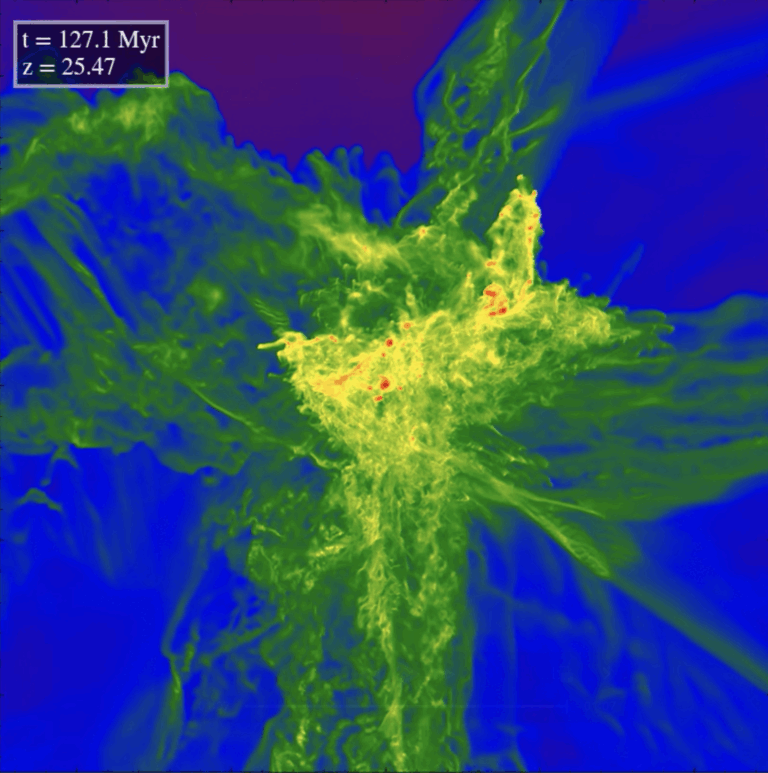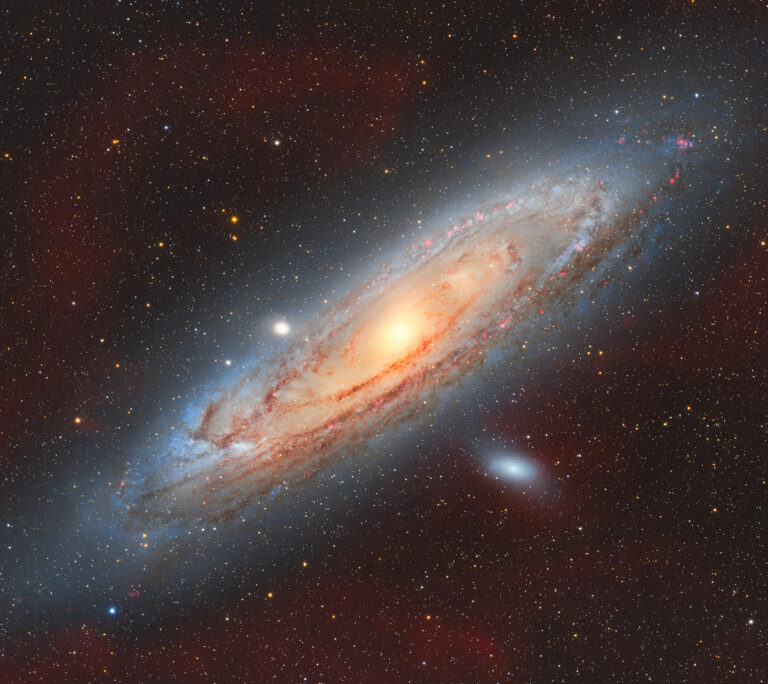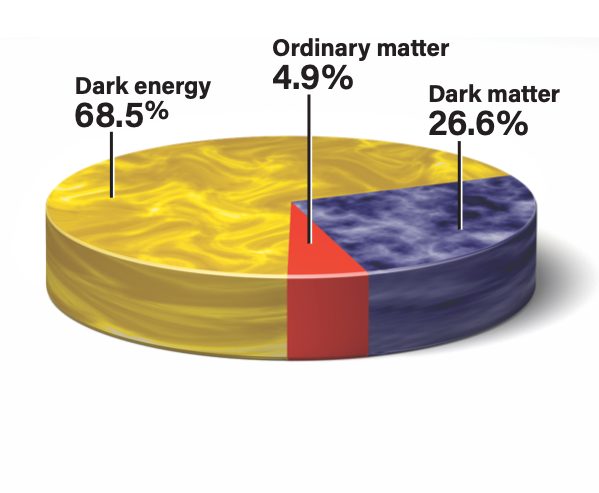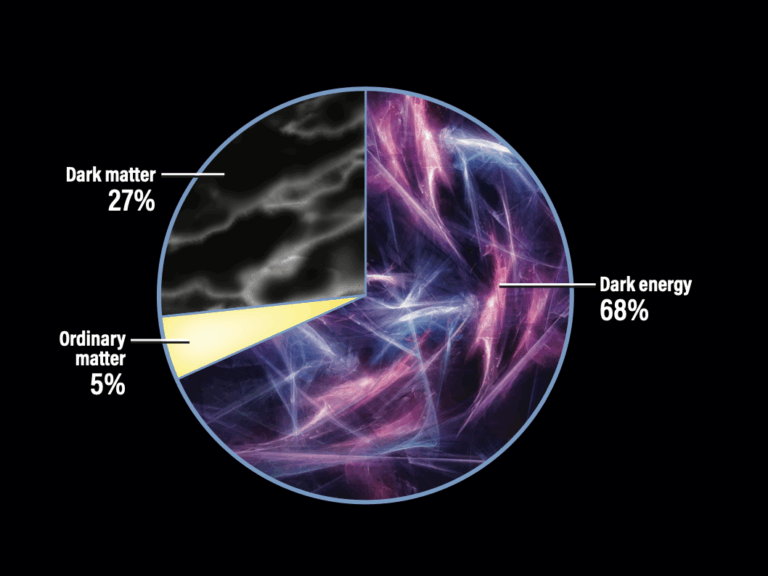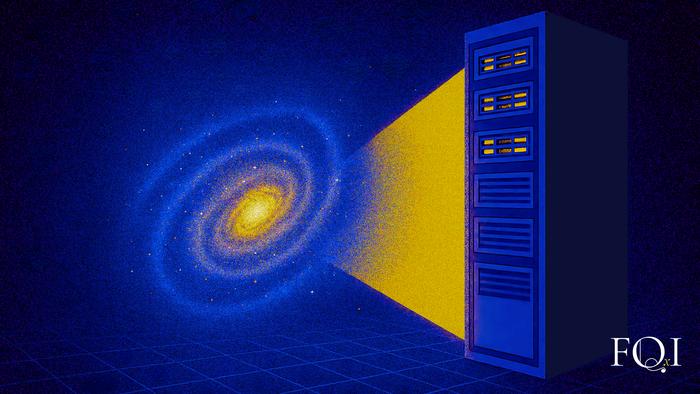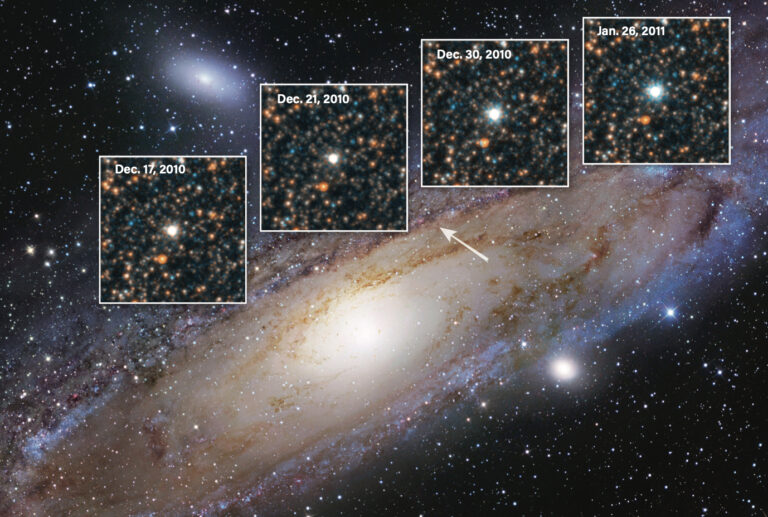How will the universe end? Humanity has pondered this question for thousands of years. And now science actually has the knowledge and tools to attempt an answer.
Until rather recently, astronomers thought the cosmos would repeatedly expand and collapse in an infinite cycle of cosmic death and rebirth. But the best evidence points to a distant Armageddon filled with more existential dread than the Book of Revelation. Trillions of years in the future, long after Earth is destroyed, the universe will drift apart until galaxy and star formation ceases. Slowly, stars will fizzle out, turning night skies black. All lingering matter will be gobbled up by black holes until there’s nothing left. Finally, the last traces of heat will disappear.
Rather than meeting its end through fire and brimstone, the cosmos will likely succumb to “heat death.” Astronomers call it the Big Freeze.
Alpha and Omega
The universe didn’t always seem destined to end this way. Roughly a century ago, astronomers thought that our Milky Way Galaxy was the entire universe. Our cosmos appeared static — it had always been, and would always remain, roughly the same. However, as Albert Einstein formulated his theories of relativity, he noticed signs of something strange. His equations implied a universe in motion, either expanding or contracting. So Einstein added a fudge factor — a cosmological constant — that held the universe in a more appealing steady state.
“Einstein was not being stupid; he was feeling the feeling of astronomers,” says Nobel Prize-winning cosmologist John Mather, the head scientist for NASA’s James Webb Space Telescope.
However, around the same time, astronomers began to accept that some of the fuzzy spiral-shaped nebulae they observed through their telescopes were not collections of stars in our galaxy. They were other galaxies entirely. And when Edwin Hubble meticulously measured their motions, he showed these galaxies were indeed moving away from our own. Humanity had discovered that the universe is expanding.
Pressing rewind on that expansion ultimately revealed that the entire universe was born in a violent Big Bang some 13.8 billion years ago. With its foundations firmly fixed, cosmology turned to the next great question: How will the universe end?
There are two main ways for an expanding universe to die: The cosmos could eventually collapse back in on itself, or it could continue inflating forever. To find out which is right, astronomers had to fast-forward the evolution of the universe.
The Big Crunch
In 1922, Russian physicist and mathematician Alexander Friedmann derived a famous set of equations aptly named the Friedmann equations. These calculations showed that our universe’s destiny is determined by its density, and it could either expand or contract, rather than remain in a steady state. With enough matter, gravity would eventually halt the cosmos’ expansion, causing it to come crashing back inward.
In the 1960s and 1970s, when astronomers added up all the matter in the known universe, they calculated there was enough mass that the cosmos should ultimately collapse to an infinitely dense state, or perhaps even a gargantuan black hole.
Some speculated that once compressed into an infinitely small point — the Big Crunch — the universe would kickstart yet another expansion, or Big Bounce.
In the 1970s and 1980s, physicist John Wheeler, who helped coin the term black hole, became a leading proponent of the Big Crunch. To him, it was an obvious fate. A revolution in understanding black holes was underway, and Wheeler saw each one as an “experimental model” of the universe’s final state.
But Wheeler’s Big Crunch fondness was partially born from aesthetics, he admitted. It was easy to picture.
The Big Freeze
Unfortunately, reality is not always so relatable.
“Just because we might find a cold, empty universe an unappealing future doesn’t mean that that’s not where things are headed,” Columbia University physicist Peter Woit writes on his blog, Not Even Wrong.
In the late 1990s, two separate groups of scientists were surveying the distant universe, studying dying stars called type Ia supernovae, which serve as standard candles that help establish cosmic distances. They found distant blasts appeared dimmer, and were therefore farther away, than expected. The universe’s expansion wasn’t slowing down at all — it was speeding up. The teams had independently stumbled onto dark energy, shattering existing models of the universe. (See “The mystery of dark energy,” page 53.)
The expectation-defying discovery of dark energy showed the universe was very unlikely to collapse in a Big Crunch. Even with all the matter in the universe tugging inward, gravity will never be strong enough to overcome the inflating effect of dark energy. In other words, the ballooning universe is destined for a Big Freeze.
These days, astronomers think normal matter comprises just 5 percent of the universe’s contents. Meanwhile, dark matter makes up some 26 percent, and dark energy accounts for the final 69 percent. Dark energy, it turns out, seems to be the real-world force behind Einstein’s cosmological constant, which plays a major role in preventing a Big Crunch-style collapse.
Thanks to the expansion caused by dark energy, within a couple of trillion years, all but the closest galaxies will be too far away to see. Then, perhaps 100 trillion years later, star formation will cease, as dense stellar remnants like white dwarfs and black holes lock up any remaining material.
About a googol years from now — that’s a 1 followed by 100 zeroes — the last objects in the universe, supermassive black holes, will finish evaporating via Hawking radiation. After this, the universe enters a so-called Dark Era, where matter is just a distant memory.
The second law of thermodynamics suggests that entropy will keep increasing in a system (such as the cosmos) until it hits a maximum level. In real terms, that means that at some point, the universe will ultimately reach a state where all energy — and, hence, heat — is uniformly distributed. The final temperature of the entire universe will hover a smidge above absolute zero.
So, rather than mirroring Revelation, the death of our cosmos will likely resemble the beginning of Genesis: All will be empty and dark.

